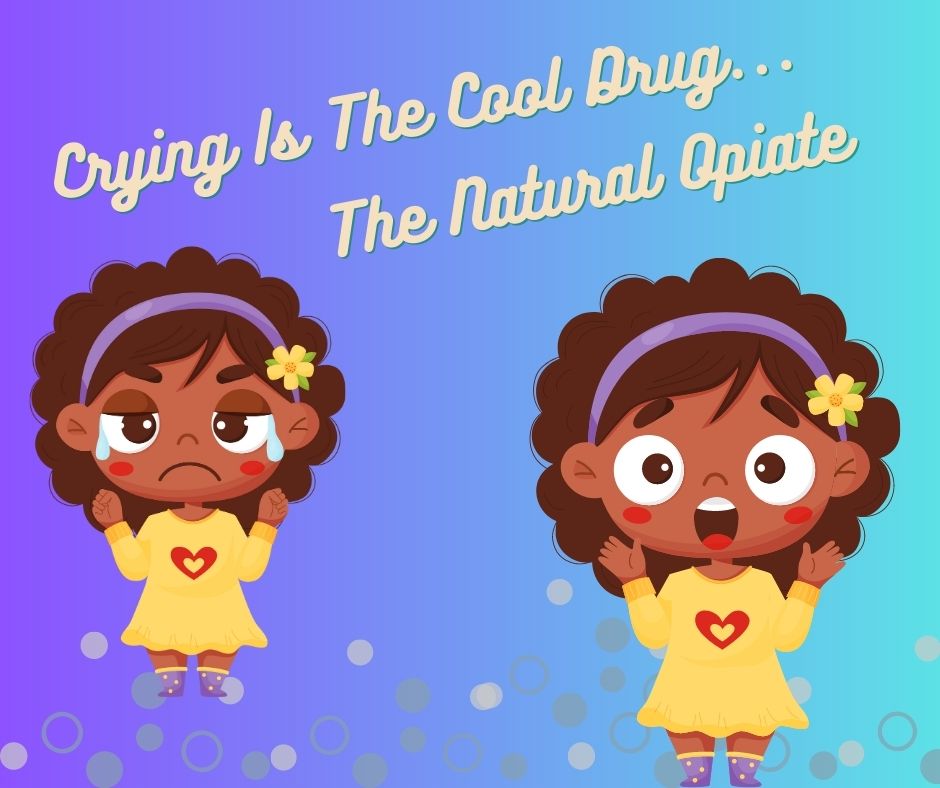Stop Crying? It’s a Natural Opiate. The “Cool” Narcotic.

“Ok enough. Stop crying now.”
“Why is she crying?”
“There’s no need to cry over this.”
As if these directives have ever made someone actually stop crying. Don’t people know that telling someone to stop crying makes them cry even more!
But why is crying such a bad thing? Why is someone taunted as a “cry baby” for being emotional?
According to research reported by Harvard Health Publishing in 2021, American women cry on average of 3.5 times each month (sounds about right), while American men cry on overage of 1.9 times each month. Considering we live in a culture where crying is a sign of weakness, instability or manipulation, I was surprised to read that men cry even once a month. My guess is that they do so incognito.
As a self proclaimed “crier” and a proponent of sharing emotions for the benefit of your mental health, I despise hearing someone being told to stop crying, especially children.
Crying is the antithesis of repressive coping, one’s strategy of self-protection that involves dismissing or ignoring strong emotions. Repressive coping can be detrimental to our health, creating more stress and ultimately a weakening immune system. There is a direct correlation between a weak mental sphere and an unbalanced physical sphere.
Crying Detoxifies Our Bodies
I was surprised to learn that crying detoxifies our bodies. Emotional tears contain stress hormones and other toxins that crying flushes out. Crying releases endorphins, oxytocin, and endogenous opiates decreasing stress and anxiety.
It makes sense. Sometimes we just need a good cry to feel better. Sometimes, so do our children, especially as they are trying to figure out their own emotions.
Puberty and hormones, school, navigating relationships and social media, active shooter drills in school… a lot is being thrown at our children so we need to cut them some slack if there are times when they just need a good release of tears. So, let’s celebrate these natural opiates!
Telling them to stop crying and that “they’ll get over it” just encourages them to restrict their emotions. Why would they want to share their emotions with you next time? As a result, they may be prone to restrictive coping.
Additionally, suppressing a child’s urge to cry avoids talking out a specific situation and learning from that moment in time. You, as a parent, are losing a teaching opportunity.
As my daughter grows up, I’m learning to give her some space to learn how to manage and navigate through her feelings. I’ve realized that when she’s sad or emotional, I tend to need an answer as to what is causing those emotions. But a growing child doesn’t always have the answer. They too are figuring themselves out, just as we still are.
We are human and adulting is not easy, so forgive yourself if you’ve gotten frustrated with your children over their tantrums. But keep in mind, that growing up with a strong mental sphere starts NOW.
Society is finally starting to normalize mental health and the necessity for a strong mental sphere. So, instead of seeing crying as a weakness, know that our children are being brave enough to share their emotions and are creating a comfortable relationship with their own self.

Comments are closed